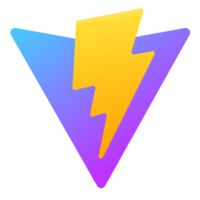Need advice about which tool to choose?Ask the StackShare community!
Add tool
JsonAPI vs OData: What are the differences?
# Introduction
Key differences between JsonAPI and OData:
1. **Data Structure**: JsonAPI uses a specific structured format for data responses, including links between related resources, while OData offers more flexibility in data structure and allows for complex querying capabilities.
2. **Versioning**: JsonAPI does not have built-in support for versioning, whereas OData provides clear guidelines and support for versioning APIs to maintain compatibility over time.
3. **Querying**: OData supports advanced querying functionalities such as filtering, sorting, and expanding relationships, which JsonAPI does not have out of the box.
4. **Metadata**: OData includes metadata capabilities to describe the structure of data entities, which helps in self-explanatory APIs, whereas JsonAPI lacks explicit metadata features and relies on conventions for data interpretation.
5. **Protocol**: JsonAPI follows a specific protocol for API design and data representation, while OData is more protocol-agnostic and can be implemented over various protocols like HTTP, Atom, or JSON.
6. **Community and Ecosystem**: OData has a larger and more established community with extensive tooling and support, while JsonAPI has a smaller but growing community that focuses on simplicity and standardization.
In Summary, the key differences between JsonAPI and OData lie in data structure, versioning support, querying capabilities, metadata handling, protocol adherence, and community ecosystem.
Get Advice from developers at your company using StackShare Enterprise. Sign up for StackShare Enterprise.
Learn MorePros of JsonAPI
Pros of OData
Pros of JsonAPI
Be the first to leave a pro
Pros of OData
- Patterns for paging, sorting, filtering7
- ISO Standard5
- Query Language4
- RESTful3
- No overfetching, no underfetching3
- Get many resources in a single request2
- Self-documenting2
- Batch requests2
- Bulk requests ("array upsert")2
- Ask for what you need, get exactly that2
- Evolve your API by following the compatibility rules1
- Resource model defines conventional operations1
- Resource Modification Language1
Sign up to add or upvote prosMake informed product decisions
Cons of JsonAPI
Cons of OData
Cons of JsonAPI
Be the first to leave a con
Cons of OData
- Overwhelming, no "baby steps" documentation1
Sign up to add or upvote consMake informed product decisions
What is JsonAPI?
t is a format that works with HTTP. A main goal of the specification is to optimize HTTP requests both in terms of the number of requests and the size of data packages exchanged between clients and servers.
What is OData?
It is an ISO/IEC approved, OASIS standard that defines a set of best practices for building and consuming RESTful APIs. It helps you focus on your business logic while building RESTful APIs without having to worry about the various approaches to define request and response headers, status codes, HTTP methods, URL conventions, media types, payload formats, query options, etc.
Need advice about which tool to choose?Ask the StackShare community!
Jobs that mention JsonAPI and OData as a desired skillset
What companies use JsonAPI?
What companies use OData?
What companies use JsonAPI?
What companies use OData?
See which teams inside your own company are using JsonAPI or OData.
Sign up for StackShare EnterpriseLearn MoreSign up to get full access to all the companiesMake informed product decisions
What tools integrate with JsonAPI?
What tools integrate with OData?
What tools integrate with JsonAPI?
No integrations found
What tools integrate with OData?
Sign up to get full access to all the tool integrationsMake informed product decisions
What are some alternatives to JsonAPI and OData?
GraphQL
GraphQL is a data query language and runtime designed and used at Facebook to request and deliver data to mobile and web apps since 2012.
JSON
JavaScript Object Notation is a lightweight data-interchange format. It is easy for humans to read and write. It is easy for machines to parse and generate. It is based on a subset of the JavaScript Programming Language.
SQL
SQL is designed for managing data held in a relational database management system (RDBMS), or for stream processing in a relational data stream management system (RDSMS).
Prisma
Prisma is an open-source database toolkit. It replaces traditional ORMs and makes database access easy with an auto-generated query builder for TypeScript & Node.js.
Oracle PL/SQL
It is a powerful, yet straightforward database programming language. It is easy to both write and read, and comes packed with lots of out-of-the-box optimizations and security features.































